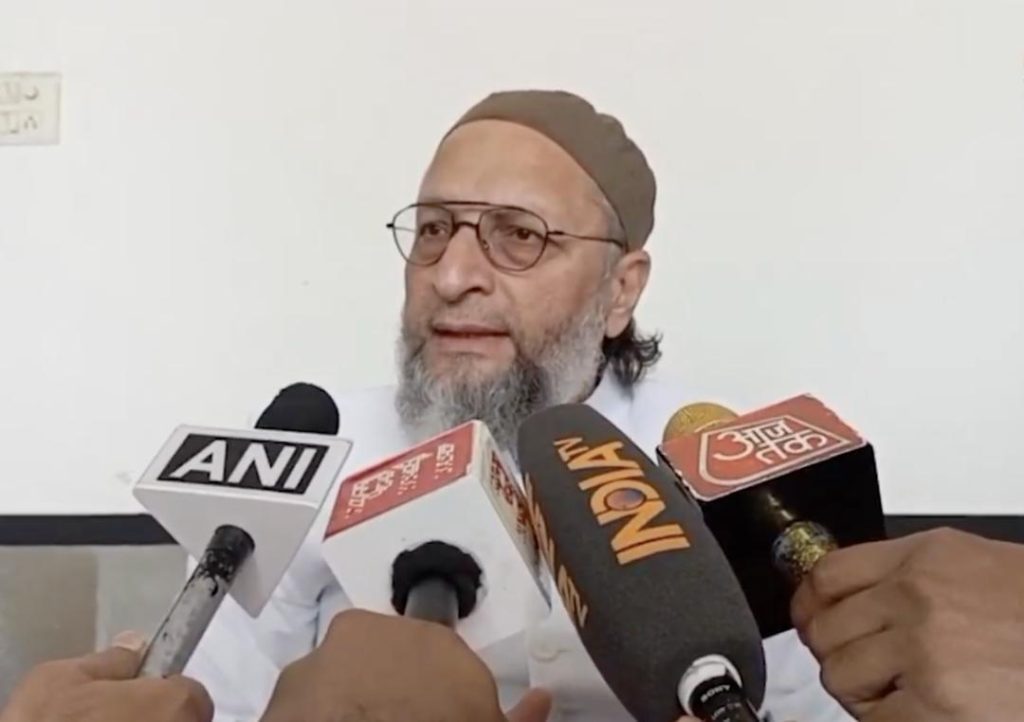
Arrest 4-5 ministers & govt is gone: Owaisi on PM-CM removal Bills
The recent draft of the Constitution (130th) Amendment Bill has sent shockwaves across the political spectrum, with many calling it a draconian measure. The Bill seeks to empower the President to remove the Prime Minister, Chief Ministers, and ministers who are arrested for at least 30 days. AIMIM chief Asaduddin Owaisi has expressed his strong reservations against the proposed legislation, stating that it is a blatant attempt to undermine the democratic process.
Speaking to the media, Owaisi said, “Just arrest four-five ministers, and government is gone. This proposed bill is saying that the President can remove the Prime Minister. What is this?” He further emphasized that the Bill is a clear attempt to curtail the powers of the Prime Minister and the Chief Ministers, and is a threat to the very fabric of democracy.
Owaisi’s comments have sparked widespread debate, with many calling for the Bill to be withdrawn. Critics argue that the proposed legislation would give the President unchecked powers, allowing them to remove elected representatives at whim. This, they claim, would lead to a breakdown in the democratic process and undermine the accountability of the government.
The AIMIM chief is not the only one to raise concerns about the Bill. Many experts have also expressed their reservations, citing the potential for abuse of power. “This Bill is a recipe for disaster,” said former Chief Justice of India, Ranjan Gogoi. “It would give the President unlimited powers, allowing them to remove anyone they deem unfit. This is a clear violation of the principles of democracy.”
Despite the widespread criticism, the government remains adamant that the Bill is necessary to address the issue of corruption and governance. “The Bill is designed to ensure that those who are guilty of corruption and misgovernance are held accountable,” said a government spokesperson. “It is a step towards creating a more transparent and accountable government.”
However, many have questioned the government’s motives, pointing out that the Bill appears to be a thinly veiled attempt to target political opponents. “This Bill is a clear case of political vendetta,” said Owaisi. “It is an attempt to silence political opponents and undermine the democratic process.”
The Constitution (130th) Amendment Bill is not the only proposed legislation to have raised concerns about the government’s intentions. The recent draft of the National Register of Citizens (NRC) has also sparked widespread debate, with many calling it a recipe for disaster. The NRC, which seeks to identify and deport illegal immigrants, has been criticized for its flawed methodology and potential for abuse.
“The NRC is a clear attempt to target a particular community,” said Owaisi. “It is a violation of the principles of citizenship and an attack on the fundamental rights of individuals.” Many have also expressed concerns about the potential for discrimination and bias in the NRC process.
As the government continues to push forward with its proposed legislation, it remains to be seen whether it will be able to overcome the mounting opposition. The AIMIM chief has called for a united front against the Bill, urging all opposition parties to come together to challenge the government’s plans.
“The government is trying to undermine the democratic process,” said Owaisi. “We must stand together to protect our rights and freedoms. We must not allow the government to trample over our fundamental rights under the guise of national interest.”
In conclusion, the proposed Constitution (130th) Amendment Bill and the National Register of Citizens (NRC) have sent shockwaves across the political spectrum, with many calling them draconian measures. The AIMIM chief has expressed his strong reservations against the proposed legislation, citing concerns about the potential for abuse of power and the undermining of the democratic process. As the government continues to push forward with its plans, it remains to be seen whether it will be able to overcome the mounting opposition and protect the fundamental rights and freedoms of its citizens.






